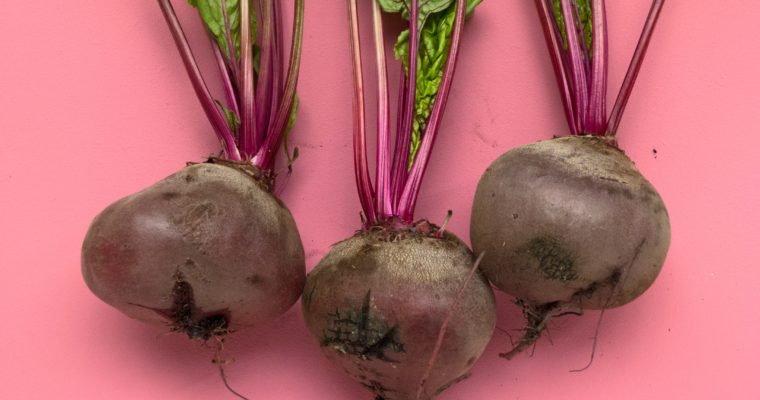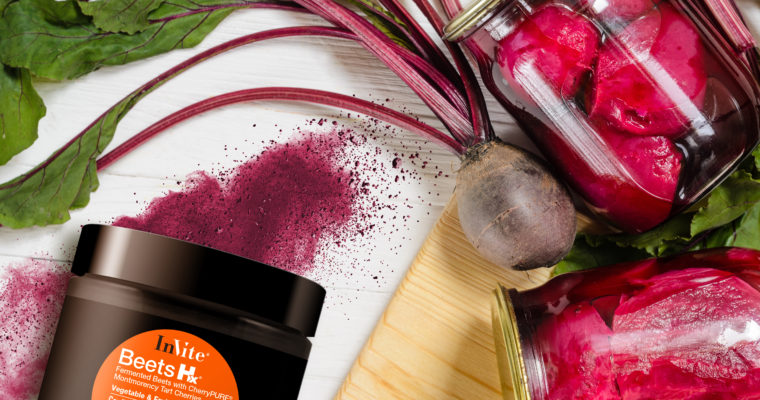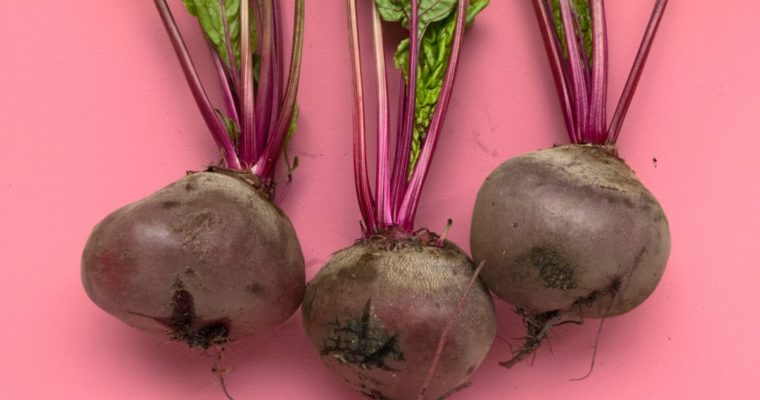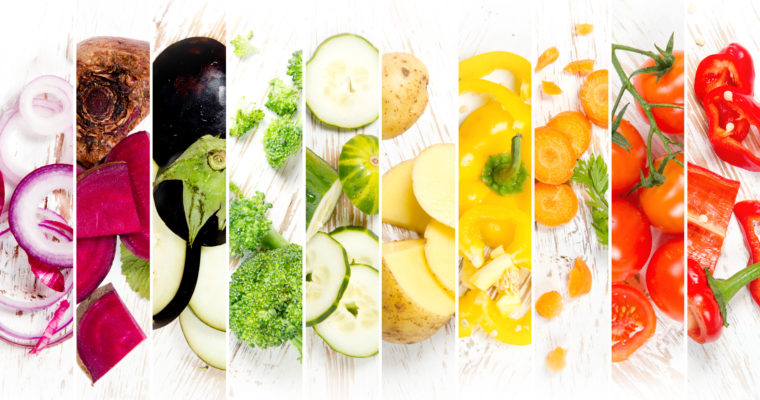?: @culturekitty
Beets are a powerful superfood. Its reddish-brown betalains are powerful antioxidants that protect the walls of arteries. Trimethylglycine detoxifies homocysteine; elevated homocysteine is implicated in clogged arteries. The natural nitrates create nitric oxide, responsible for healthy blood flow, heart and circulatory health, and for support during physical activities. Beetroot has become very popular due to its high levels of nitrates that have important implications for managing cardiovascular health.
Heart Health
According to Scientific Director and Pharmacist Jerry Hickey, beets are a source of many heart health constituents. Beetroot helps to support healthy blood pressure and cardiovascular/circulatory health for many reasons – protecting the arteries and healthy blood flow. In a study published earlier this year in the American Physiological Society, researchers found that dietary nitrate (a compound that dilates blood vessels to decrease blood pressure) in beetroot juice reduced over stimulation of the sympathetic nervous system that occurs with heart disease.
Bioavailability
Bioavailability is a term that describes the ease with which any nutrient can be absorbed into the body from the food you eat; its active compounds are absorbed through the intestinal tract and made available in the body to be utilized by the cells for energy. In beets in particular, the bioavailability of its nitrates (as seen in numerous reports) are close to 100% absorption following digestion. [1]
Oxidative Stress
According to a report published in the journal Nutrients, beetroot supplementation might serve as a useful strategy to strengthen antioxidant defenses, helping to protect cellular components from oxidative damage.” Oxidative stress is the imbalance between the production of free radicals and the ability of the body to counteract or detoxify their harmful effects through neutralization by antioxidants. Free radicals attack cell membranes, destroy enzymes, and disrupt proteins from being made, along with creating waste products.
Inflammation
Inflammation is the body’s natural response to a biological and physical stimuli like trauma or infection. According to the report in Nutrients, betalains and beetroot extracts have emerged as potent anti-inflammatory agents. In a 2014 study published in the journal Mediators Inflammatory, rats were administered a beetroot extract for 28 days. Rats on the extract had lower concentrations of immune cells and reduced signs of oxidative damage, which “are likely to be mediated, at least in part, by the betalains present in beetroot.”
Endothelial Function
The endothelium, tissue which lines the organs and cavities of the body, plays a critical role in the body’s homeostasis. Beetroot naturally converts nitrite to nitric oxide, which mediates many of the endothelium’s functions. In a 2013 study, brachial artery flow-mediated dilation (which measures the degree and severity of cardiovascular disease) fell by 1.6% in the control condition, whereas after beetroot juice, the impairment was only 0.4%, indicating that beetroot mediated protective effects on postprandial endothelial function.[2]
Cognitive Function
A preliminary study explored the influence of acute beetroot supplementation on age-related cognitive function. In the study, participants older than 67 years and had type-2 diabetes took 250 mL of beetroot juice for 14 days and experienced a significant improvement in simple reaction time compared to a control group.
Based on the available data, this report concludes “the powerful antioxidant, anti-inflammatory and vascular-protective effects offered by beetroot and its constituents have been clearly demonstrated in several human and animal studies; hence it’s increasing popularity as a nutritional approach. In human studies to date, beetroot supplementation has been reported to reduce blood pressure, attenuate inflammation, avert oxidative stress, and preserve endothelial function. Furthermore, several studies have now established beetroot supplementation as an effective means of enhancing athletic performance.”[3]
[1] https://www.ncbi.nlm.nih.gov/pmc/articles/PMC4425174/
[2] https://www.ncbi.nlm.nih.gov/pmc/articles/PMC4425174/#B83-nutrients-07-02801
[3] https://www.ncbi.nlm.nih.gov/pmc/articles/PMC4425174/
Questions about Beetroot? Leave Scientific Director and Pharmacist, Jerry Hickey a comment!








